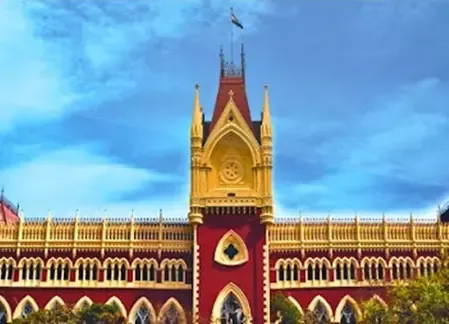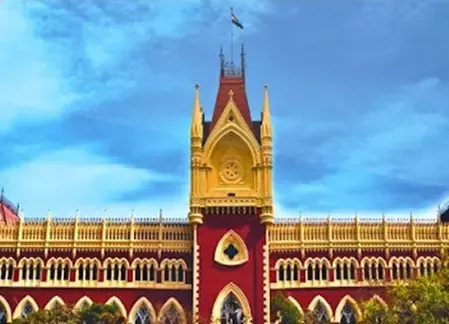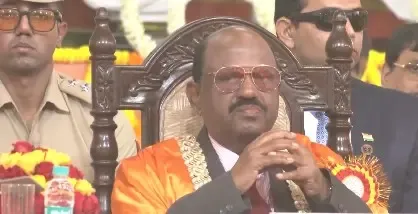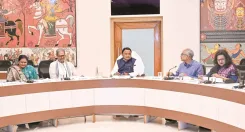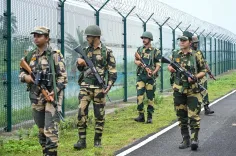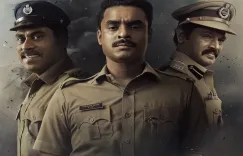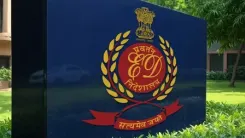One Nation, One Election Promises Significant Gains for India: JPC Chair PP Chaudhary
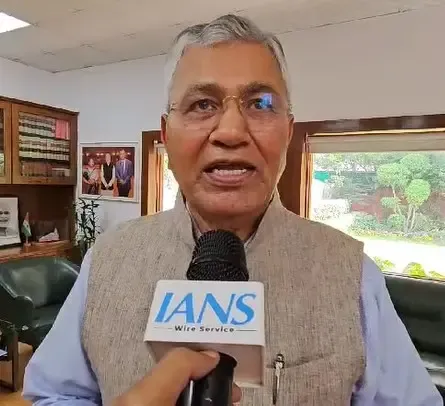
Synopsis
Key Takeaways
- Synchronization of elections promotes efficient governance.
- Potential savings of thousands of crores of rupees.
- Indirect GDP growth of around 1.6 percent.
- Historical precedent for simultaneous elections in India.
- Encouragement for other democracies to adopt similar practices.
New Delhi, March 11 (NationPress) P.P. Chaudhary, the chairman of the Joint Parliamentary Committee (JPC) on 'One Nation, One Election' (ONOE), emphasized on Tuesday how the 'poll model' could allow elected officials to dedicate their entire five-year term to governance, yielding immense benefits for the nation.
A meeting of the JPC regarding ONOE was convened last week, where all members exhibited a 'positive attitude'. The Constitution Amendment Bill concerning ONOE, which is currently under JPC review, aims to synchronize Lok Sabha and state assembly elections, thus simplifying the electoral process.
The JPC, led by BJP's P.P. Chaudhary, includes 39 members, comprising 27 from the Lok Sabha and 12 from the Rajya Sabha.
In a special discussion with IANS, Chaudhary elaborated on the transformative potential of the bill for the Indian political landscape and expressed hope that the Opposition would not resist the bill merely for the sake of opposition.
"Today's meeting is not intended for strategy development. It will primarily be a presentation and interaction session. Former Chief Justice Ranjan Gogoi will be present for interactions, alongside former Chief Justice of the Delhi High Court, Rajendra Menon, for discussions as well," he noted.
Addressing logistical concerns, Chaudhary highlighted that from 1952 to 1967, elections were held simultaneously across the nation despite lacking modern resources like EVMs, VVPATs, and advanced technology.
"Back then, we didn't have the resources available today. There were no EVMs or VVPATs, nor were there advanced systems or technologies. Yet, elections were conducted concurrently nationwide. Now, we've advanced significantly, and India is the world’s third-largest economy. Therefore, we can say that achieving this is feasible," he stated.
"Our official witnesses from the Election Commission and IT ministries will be called in, along with those related to technology, to discuss how simultaneous elections can be feasible. In this technological era, gathering all election resources at once is not a daunting task," he further mentioned.
Emphasizing the potential benefits of ONOE, Chaudhary asserted that synchronizing elections would lead to substantial savings, both direct and indirect, which would 'greatly benefit' India.
"Once synchronization occurs, the direct and indirect benefits will be significant. The direct benefit is that savings of thousands of crores of rupees will be realized. An indirect profit of approximately 1.6 percent in GDP will also occur," he explained.
Responding to the Congress party’s persistent opposition, Chaudhary remarked, "I believe that opposing merely for opposition's sake is not appropriate. However, if there are genuine concerns, we are willing to address them. But if after addressing the issues, there remains only opposition, then we have no solution for that. Nonetheless, I still believe those opposing will eventually join us wholeheartedly."
He added that many Congress leaders have privately conveyed their worries regarding the disruptions caused by frequent elections.
"The time of politicians is not fully dedicated to the responsibilities for which they were elected. Rather than focusing on law-making and serving the public for the entire five years, parties get caught up in election campaigns. Hence, the proper work expected in a democracy remains unfulfilled," he stated.
Confident about reaching a consensus, Chaudhary asserted that ONOE would not only benefit India but could also serve as a model for other democracies globally.
"We will achieve consensus, and there is no doubt about it. 'One Nation, One Election' is for the nation's benefit. It is advantageous to elevate the country’s economy to the third position and beyond," he concluded.
"Once India implements this, I believe that other established democracies worldwide will take notice and strive to adopt it as well, recognizing that if India, with its vast democracy and numerous voters, can conduct ONOE successfully, then so can other democracies across the globe," he added.


